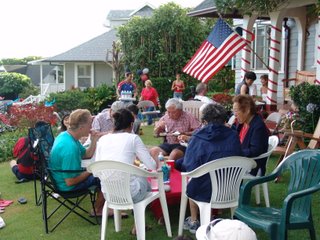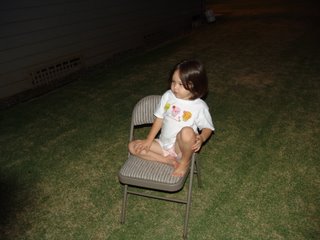The Great Depression, Mr. Roosevelt, and the 4th of July

My mother always refers to him as "Mr. Roosevelt." It's a sign of respect. She doesn't call any other President, "Mr." The reason has to do with her family's experience in the Great Depression.
My grandfather was a barber and sometime teacher. He was also an alcoholic.
When the Great Depression came, people stopped going to barbers where my mother's family was living in McDowell County, the southernmost county in West Virginia. A haircut from a barber became an unnecessary extravagance. My grandfather soon lost his barbershop. My mother's family then began a retreat to cheaper and cheaper rentals in smaller and smaller towns. They moved from East War to Cucumber and finally ended up in a house on a ridge near a village called Newhall.
New Hall is a cluster of a dozen or so houses. There used to be a school there, too, for the children of the surrounding countryside. The structure is still there, but it's no longer used as a school. I believe it's part of a nonprofit now.
My mother's family's house was a mile or so away from the village on a sharp little finger of a ridge beside a dirt road running along a creek and some bottom land. The house had stood empty for some years. The side of the ridge that led up to the house was very steep. There was and is no path up to the house. There was a well behind the house for water. The house itself had two bedrooms. By this time, there were four children living at home--along with my mother, her two older sisters and her older brother. My mother's younger brother hadn't been born yet. Her parents slept in one bedroom, and she and her sisters slept in the other. My mother's older brother slept on the couch.

There was a field behind the house that the family could grow vegetables on--that's what had made the house attractive to my grandfather. They planted different kinds of beans and corn and vegetables there--okra, tomatoes, other things. The family survived on the beans, the vegetables, and the few supplies that they needed to buy--flour, lard, salt, sugar, and "fat back," my mother calls it. A fatty cut of bacon. And turkeys, too. "Daddy would win 'em at turkey shoots and pool shoots," my mother says. "They said he was a good shot. Must have been because we always had turkeys, and we sure didn't grow 'em!"
My mother's older brother did most of the farming in the two years in the early '30s that they lived there. That was one of the reasons, I think, that he was held in special and tender regard by my mother and the sister closest to her throughout his life. One of the stories they tell is of how he buried a hatchet in his leg while clearing stumps from the field. He got his sisters to help him boil a needle and then he sewed up the gash himself. I knew him a little, and I believe the story. A quiet, purposeful, and very kind man. The sort of man you could count on to do whatever needed to be done. It says something important about him that when he died, his stepchildren--and he had many of them, having married a widowed mother with a large family--all honored him.
The interior walls of the house in Newhall had been papered with old newspaper. When they moved into it and saw the walls, my mother says, she and her sister had looked at each other and laughed, wondering what kind of place they had ended up in. "We spent the first week reading the walls," she says, laughing at herself and the plight of her family. Rueful laughter is a trademark of the family.
My grandfather made a little money selling produce and his services as a teacher and barber. But to hear my mother tell it, that money went mostly for drink.
So they lived, hand to mouth, until the programs of the New Deal. "Things didn't start to get better until Mr. Roosevelt," she says.

We cousins on my mother's side are a driven, competitive, and mostly very successful bunch. Notably successful, in fact. Many of us are entrepreneurs, with successful businesses. A number of us are conservative in our political beliefs.
I beleive that a lot of our success has to do with that ridge in Newhall. I've always thought that that experience gave our parents a certain drive that they imparted to us.
Of course, our civil liberties and economic system had something to do with it. But that's not the drum I want to beat.
I think we're at our best, not when we're pumping our arms in victory, but when we're examining our missteps and seeking to correct them. Like Mr. Roosevelt did. And my Uncle Bernard, in his own quiet, self-sacrificing, and humble way.
Happy 4th of July to you and especially to our troops in Iraq and Afghanistan. May those wars end soon.
(The pics are from a block party on the 4th this year. I did have some pics of Newhall, but they were stolen along with the camera that took them in a burglary of our home. Probably a drug related crime. Different times, different problems...)
John, Wednesday, July 4, 2006.

0 Comments:
Post a Comment
<< Home